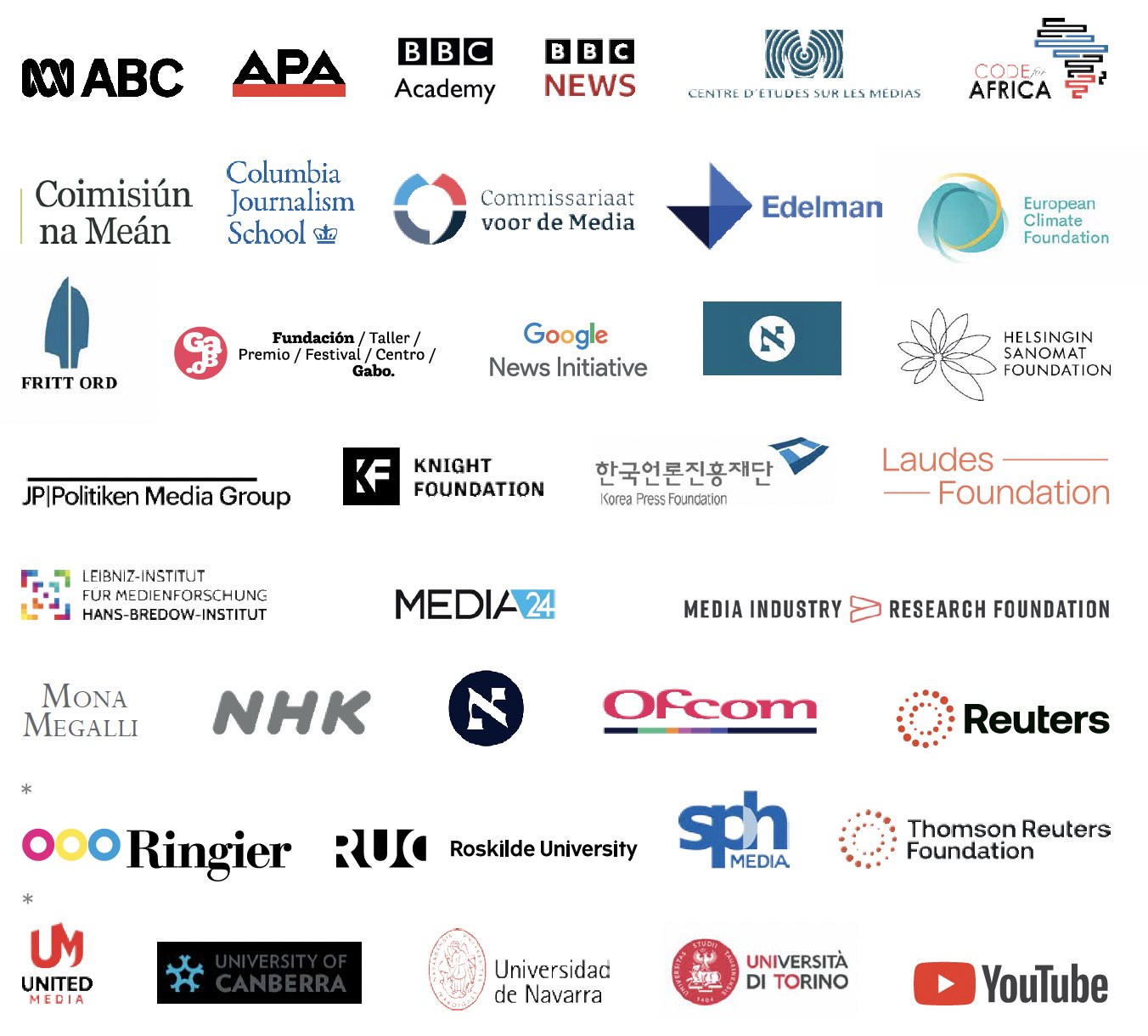Our funders enable us to fulfil our mission of exploring the future of journalism worldwide through debate, engagement, and research. Our core funding comes from the Thomson Reuters Foundation. Beyond this, we receive support from a wide range of other funders including academic funding bodies, foundations, non-profits, and industry partners, and earn income from leadership development programmes and other activities. Below is an overview of the Institute’s funding since it was created in 2006.
The Thomson Reuters Foundation is the corporate foundation of Thomson Reuters and it works to advance media freedom, raise awareness of human rights issues, and foster more inclusive economies. The Foundation has funded activities at Oxford for over 30 years. It has provided £8.1 million in core funding to the Reuters Institute since 2006.
The Thomson Reuters Foundation is the only funder who has any role in our governance structure, which is set up to maintain our independence. More about our governance.
The Institute is most grateful for the generous support of 36 other funders from whom we receive grants, donations, and in-kind support. They include universities, foundations, news organisations, academic institutions, and technology companies. Below all our supporters for the academic year 2024-2025 (we update this overview annually). For more details, see our latest Annual Report.

Our funders help us fulfil our mission by funding our research projects, our events, our publications, our editorial activities, and the journalist and leadership programmes. The relative size of each of our core areas of activity for 2023-2024 (including core funding, other support, as well as earned income) can be seen below.
As we are an integral part of the Department of Politics and International Relations at the University of Oxford, we do not have separate accounts.
Our total turnover in 2024-25 was approximately £3.9 million and the brackets below reflect the size of the contributions the Institute received from each funder in the academic year 2024-25. New sponsors for this year are indicated below with an asterisk.
£10k and under
- ABC
- Austria Press Agency
- BBC Academy
- Fundación Gabo
- Reuters
Between £10k and £50k
- BBC News
- Centre d’études sur les médias, Québec
- Code for Africa
- Coimisiún na Meán
- Columbia University School of Journalism
- Commissariaat voor de Media/Dutch Media Authority
- Edelman UK
- Fritt Ord Foundation
- Haaretz
- Helsingin Sanomat Foundation
- JP/Politikens Hus
- Korea Press Foundation
- Leibniz Institute for Media Research │ Hans-Bredow-Institut
- Media24
- Media Industry Research Foundation of Finland
- Mona Megalli
- NHK
- Nikkei Inc
- Ofcom
- Ringier AG*
- Roskilde University
- Singapore Press Holdings
- United Media*
- University of Canberra
- University of Navarra
- University of Torino
Between £50k and £200k
- Knight Foundation
Between £200k and £500k
- Laudes Foundation
- European Climate Foundation
- Thomson Reuters Foundation
- YouTube
Between £500k and £1m
None
Over £1m
- Google News Initiative
This information was published in November 2025. It is updated every year after our Steering Committee approves our operating statements and financial outcomes.
Major grants and new research projects are in addition announced separately on our website, as with the 2021 announcement on the Oxford Climate Journalism Network, the 2020 announcements of the COVID-19 news and information project and the Trust in News Project, the 2018 announcement of the one-year Journalism Innovation Project (now concluded) and the extension of the ongoing Digital News Project (running since 2015).


